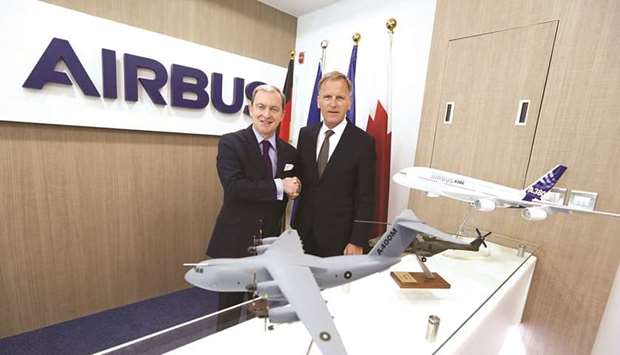Today, France and Germany celebrate another historic moment in the friendship of our two nations, on the anniversary date of the 1963 Élysée Treaty.
President Macron and Chancellor Merkel sign a new and ambitious treaty in Aachen, with a view to taking bilateral co-operation to an unprecedented level.
This new treaty is proof of our shared conviction that upcoming challenges in politics, economy, and security matters can only be tackled jointly.
On this very special moment for our two nations, it is worth remembering that, after times of bitter conflict, France and Germany together were able to find strength and clear-sightedness for reconciliation.
Our two nations were able to rebuild bridges, to reach out to the other and move forward.
Our two nations achieved this without forgetting our sufferings, without disavowing our mistakes and responsibilities, without avoiding the truth of history.
The process of developing German-French relations from the worst enmity to the closest friendship in just one generation is, in itself, an unequalled achievement.
This remarkable achievement was sealed by the Élysée treaty signed on 22 January 1963 in Paris by President Charles de Gaulle and Chancellor Konrad Adenauer.
The outstanding success of the 1963 Élysée Treaty was rooted in its focus on forward-looking encounters and exchanges between our peoples, at the level of civil society and youth, in particular.
Through dialogue and encounters, understanding and a sense of togetherness arose that are today sustaining the close and friendly German-French relations.
This success was not only one for France and Germany alone.
It was, and very much still is, about building a stronger and open Europe for the benefit of the entire world.
De Gaulle and Adenauer knew that by shaping the future course of Franco-German relations they were also shaping European integration.
Without the Élysée Treaty, there would be no union in Europe, Adenauer said in 1963.
Echoing his words, President Macron recalled at the German parliament in November 2018 that the Franco-German couple had an obligation to guide Europe on the road to peace.
Through the Treaty of Aachen, France and Germany will cooperate even more closely.
We are building on success stories such as Franco-German leadership in developing Airbus to become a leading manufacturer of civil and military aircraft and we are redoubling our efforts, e.g. by establishing a Franco-German Defence and Security Council, with a view to further strengthening our capacities in future.
At the same time, we understand that we can only master today’s global challenges by acting jointly.
Therefore, Franco-German co-operation is never meant to exclude others but always remains open for other states to join forces.
Our friendship and the dynamism of our relationship have indeed served the cause of a more unified and integrated Europe.
At the same time, it also carried a message for the world.
We do hope that the precedent set by our two countries might serve as nucleus for deeper co-operation with other countries such as the State of Qatar.
The close and friendly relations between Qatar on the one hand and France and Germany on the other in a wide variety of areas has levelled the ground for EU member states to follow and also strengthen their relations with Qatar.
Franco-German leadership is thus always meant to be beneficial not only to our countries but far beyond.
Our joint approach towards the Gulf crisis, for example, has shaped the European Union’s call for a peaceful resolution to the conflict and the support for the mediation efforts of the Amir of Kuwait.
Our countries have, since the signing of the Élysée Treaty, constantly committed to not only preserve and live up the integration of the European Union but also to promote a vision of the international order rooted in the lessons learnt by Europe from the past: one based on the respect for international law and multilateralism, on the resolution of difference through dialogue, and on the search for mutual benefits through inclusion and co-operation.
At a time when the world slides into disorder, when global challenges like climate change are denied, and when self-interests are promoted through the use of force and fait accompli, one should remember what Europe was before 1945 and compare it with what it is today, both as a wake-up call and as a source of optimism.
There is no more peaceful, prosperous and integrated part of the world than the EU today.
So, for once, let us be proud of what we have achieved and look at the future with vigilance, cautiousness, but also optimism.
Let us hope that in the coming year, the search for solutions through meaningful dialogues and co-operation will prevail.
* This is a joint statement issued by the embassies of France and Germany in Doha.

French ambassador to Qatar Franck Gellet and German ambassador Hans-Udo Muzel shake hands while viewing scale models of Airbus aircraft.
